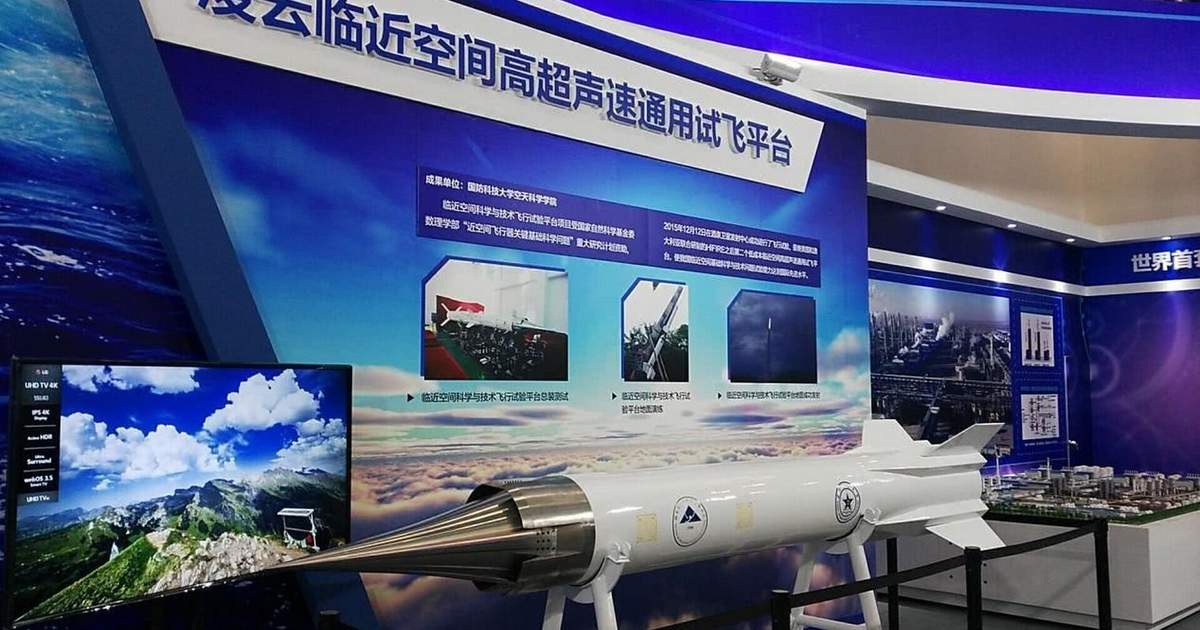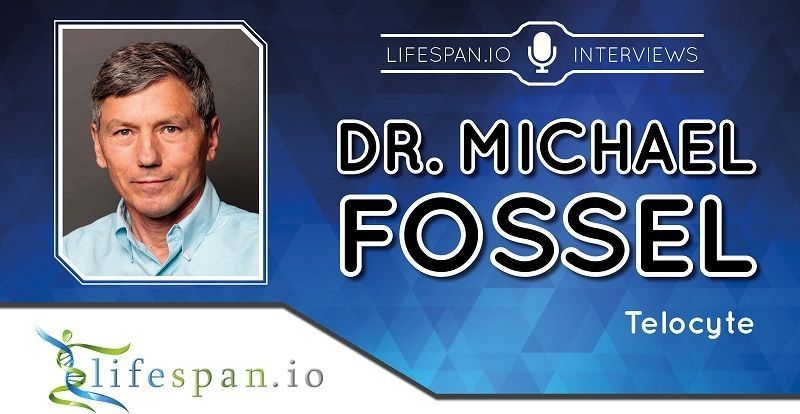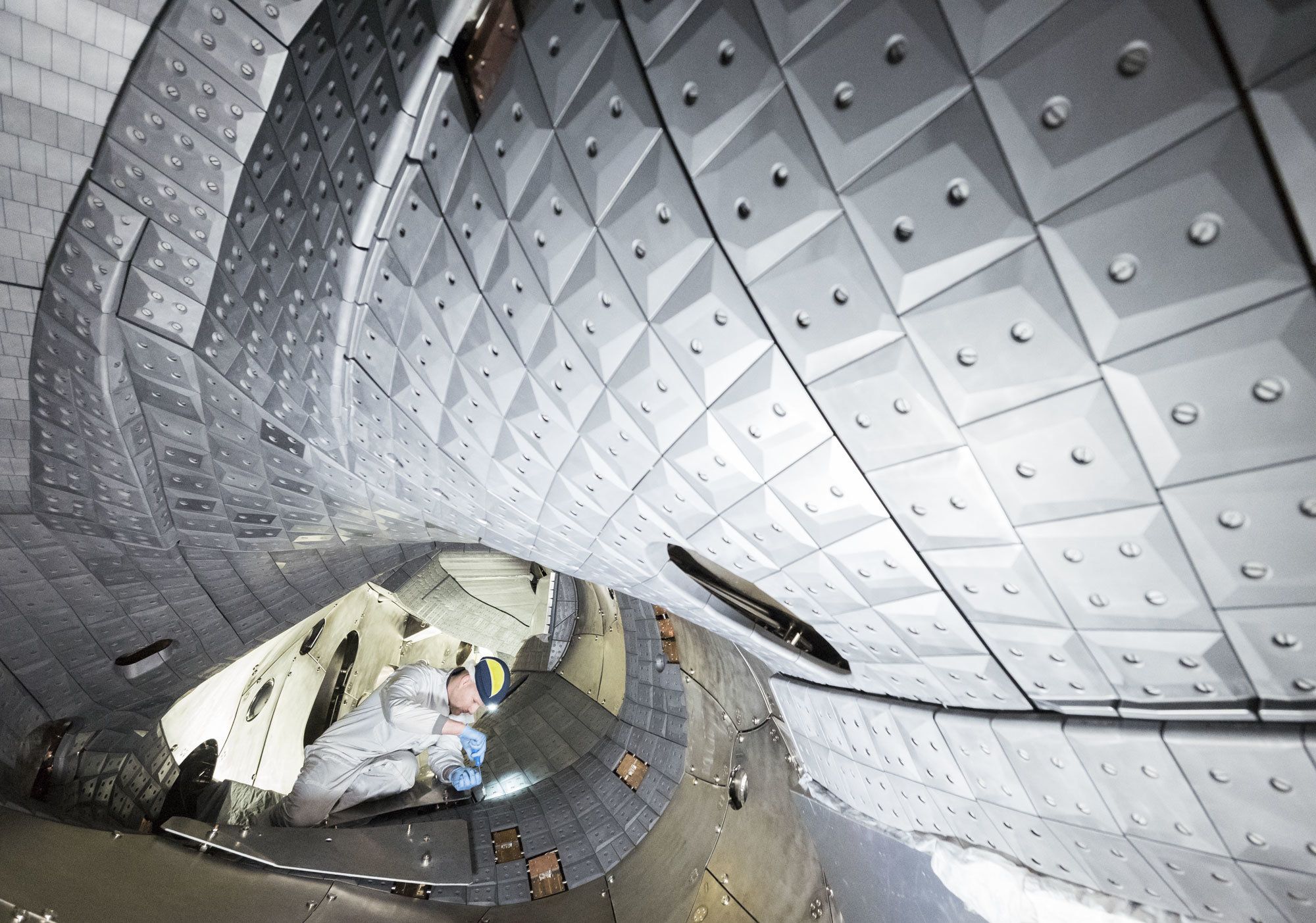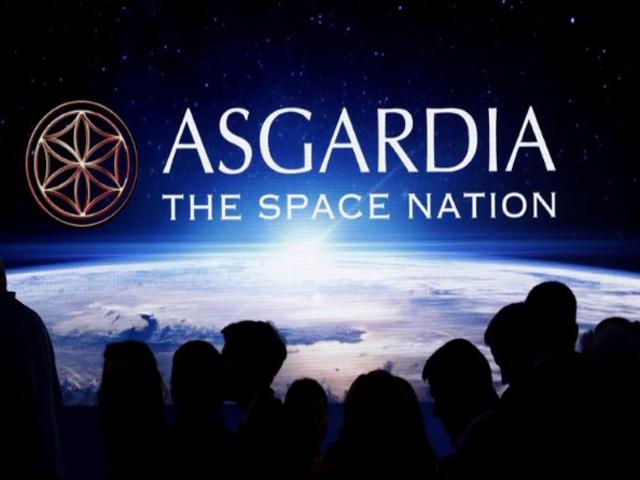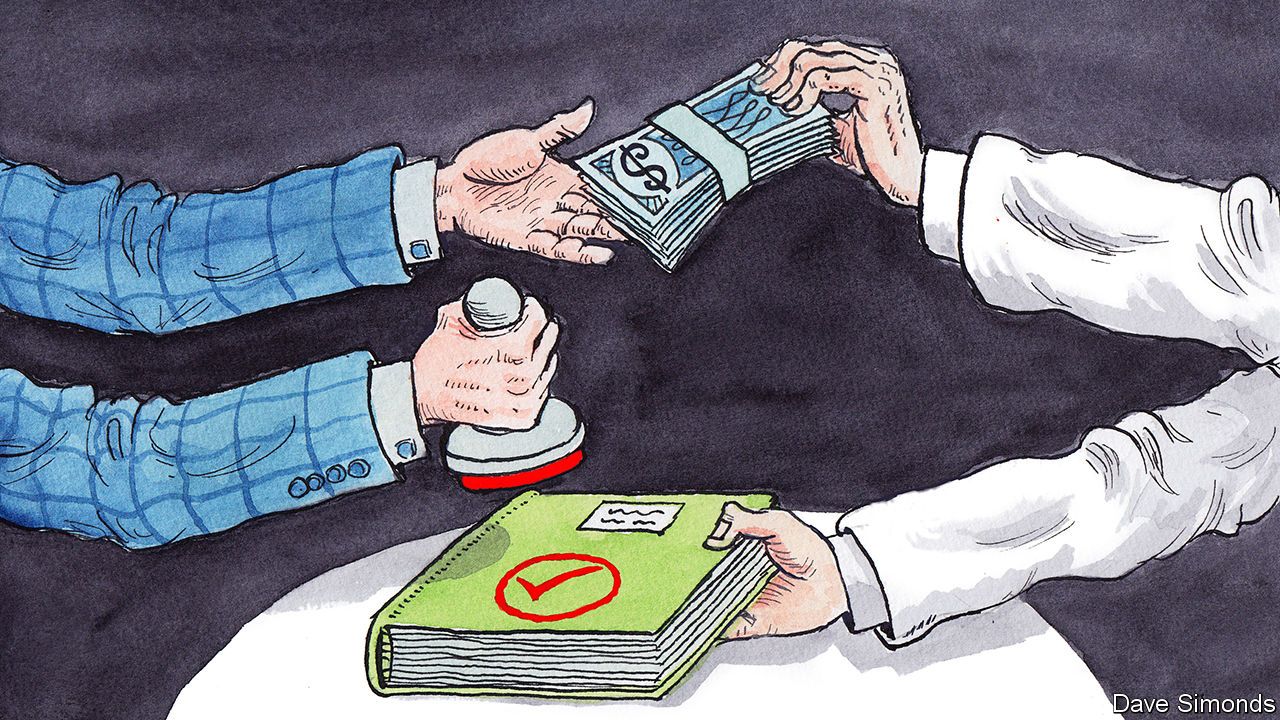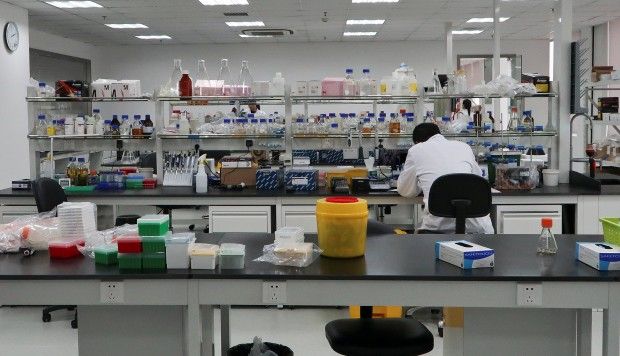Page 9709
Jun 26, 2018
Has the Telomerase Revolution Arrived? Part One
Posted by Steve Hill in categories: biotech/medical, education, life extension
Today, we have part one of a two-part interview with Dr. Michael Fossel, the driving force behind Telocyte, a new company focused on telomerase therapy for various diseases, and a strong advocate of telomerase therapy to treat human disease over the past three decades.
I interviewed Dr. Fossel as an individual thought leader in this field and not in his role representing Telocyte, so the opinions stated here are purely his own.
Born in 1950, Michael Fossel grew up in New York and lived in London, Palo Alto, San Francisco, Portland, and Denver. He graduated cum laude from Phillips Exeter Academy, received a joint B.A. and M.A. in psychology in four years from Wesleyan University in Connecticut, and, after completing a Ph.D. in neurobiology at Stanford University in 1978, went on to finish his M.D. at Stanford Medical School in two and a half years. He was awarded a National Science Foundation Fellowship and taught at Stanford University, where he began studying aging with an emphasis on premature aging syndromes. Dr. Fossel was a Clinical Professor of Medicine at Michigan State University for almost three decades and taught the Biology of Aging at Grand Valley State University.
Jun 26, 2018
How your brain decides between knowledge and ignorance
Posted by Bill Kemp in categories: food, information science, neuroscience
We have a ‘thirst for knowledge’ but sometime ‘ignorance is bliss’, so how do we choose between these two mind states at any given time?
UCL psychologists have discovered our brains use the same algorithm and neural architecture to evaluate the opportunity to gain information, as it does to evaluate rewards like food or money.
Funded by the Wellcome Trust, the research, published in the Proceedings of the National Academy of Sciences, also finds that people will spend money to both obtain advance knowledge of a good upcoming event and to remain ignorant of an upcoming bad event.
Jun 26, 2018
Wendelstein 7-X achieves world record for fusion product
Posted by Bill Kemp in category: particle physics
In the past experimentation round Wendelstein 7-X achieved higher temperatures and densities of the plasma, longer pulses and the stellarator world record for the fusion product. Moreover, first confirmation for the optimisation concept on which Wendelstein 7-X is based, was obtained. Wendelstein 7-X at Max Planck Institute for Plasma Physics (IPP) in Greifswald, the world’s largest fusion device of the stellarator type, is investigating the suitability of this concept for application in power plants.
Unlike in the first experimentation phase 2015/16 the plasma vessel of Wendelstein 7-X has been fitted with interior cladding since September last year. The vessel walls are now covered with graphite tiles, thus allowing higher temperatures and longer plasma discharges. With the so-called divertor it is also possible to control the purity and density of the plasma: The divertor tiles follow the twisted contour of the plasma edge in the form of ten broad strips along the wall of the plasma vessel. In this way, they protect particularly the wall areas onto which the particles escaping from the edge of the plasma ring are made to impinge. Along with impurities, the impinging particles are here neutralised and pumped off.
“First experience with the new wall elements are highly positive”, states Professor Dr. Thomas Sunn Pedersen. While by the end of the first campaign pulse lengths of six seconds were being attained, plasmas lasting up to 26 seconds are now being produced. A heating energy of up to 75 megajoules could be fed into the plasma, this being 18 times as much as in the first operation phase without divertor. The heating power could also be increased, this being a prerequisite to high plasma density.
Jun 26, 2018
National Defense in Jeopardy: Rising Seas Put These Military Bases at Risk of Destruction
Posted by Bill Kemp in category: military
The functional military bases that protect the national security of our country could be under water in just a few years.
Jun 26, 2018
‘Asgardian,’ planong tumira sa outer space, 25 taon mula ngayon
Posted by Michael Lance in category: space
Ayaw mo na ba sa mundo at gusto mo namang manirahan sa kalawakan? Bakit hindi mo subukang maging mamamayan ng tinatawag na “Asgardia”— ang itinatag na space nation na planong bumuo ng “space arks” na magiging tirahan sa kalawakan.
Jun 26, 2018
A physicist answers the grandest question of all: Why are we here?
Posted by Michael Lance in category: physics
Small fluctuations in the universe could explain the origins of man.
Robbert Dijkgraaf explains how competing physics theories might explain why life exists.
Jun 26, 2018
Some science journals that claim to peer review papers do not do so
Posted by Derick Lee in categories: business, economics, science
Behind all this is a change in the way a lot of journals make their money. Over the past decade, many have stopped selling subscriptions. Instead, they charge authors a publication fee and permit people to read the result for nothing. This “open access” business model has the advantage of increasing the dissemination of knowledge, but it also risks corrupting the knowledge thus disseminated.
WHETHER to get a promotion or merely a foot in the door, academics have long known that they must publish papers, typically the more the better. Tallying scholarly publications to evaluate their authors has been common since the invention of scientific journals in the 17th century. So, too, has the practice of journal editors asking independent, usually anonymous, experts to scrutinise manuscripts and reject those deemed flawed—a quality-control process now known as peer review. Of late, however, this habit of according importance to papers labelled as “peer reviewed” has become something of a gamble. A rising number of journals that claim to review submissions in this way do not bother to do so. Not coincidentally, this seems to be leading some academics to inflate their publication lists with papers that might not pass such scrutiny.
Experts debate how many journals falsely claim to engage in peer review. Cabells, an analytics firm in Texas, has compiled a blacklist of those which it believes are guilty. According to Kathleen Berryman, who is in charge of this list, the firm employs 65 criteria to determine whether a journal should go on it—though she is reluctant to go into details. Cabells’ list now totals around 8,700 journals, up from a bit over 4,000 a year ago. Another list, which grew to around 12,000 journals, was compiled until recently by Jeffrey Beall, a librarian at the University of Colorado. Using Mr Beall’s list, Bo-Christer Björk, an information scientist at the Hanken School of Economics, in Helsinki, estimates that the number of articles published in questionable journals has ballooned from about 53,000 a year in 2010 to more than 400,000 today. He estimates that 6% of academic papers by researchers in America appear in such journals.
Continue reading “Some science journals that claim to peer review papers do not do so” »
Jun 26, 2018
China to crack down on fraud in scandal-hit scientific research amid ZTE wrangle
Posted by Derick Lee in category: computing
China has issued the first national guidelines to enforce academic integrity in scientific research and vowed to punish academics and institutes for misconduct such as plagiarism and fabrication of data.
Researchers and institutes involved in misconduct including plagiarism, fabrication of data and research conclusions, ghostwriting and peer review manipulation will face severe punishments, Xinhua reported.
Scandals involving plagiarism and fabrication of research findings have become more prevalent in recent years. Springer Nature last year retracted 107 papers published in Tumor Biology between 2012 and 2017 after an investigation found the authors had supplied the journal’s editors with made-up contact information for third-party reviewers.
Jun 26, 2018
Implantable 3D-printed organs could be coming sooner than you think
Posted by Klaus Baldauf in categories: 3D printing, biotech/medical
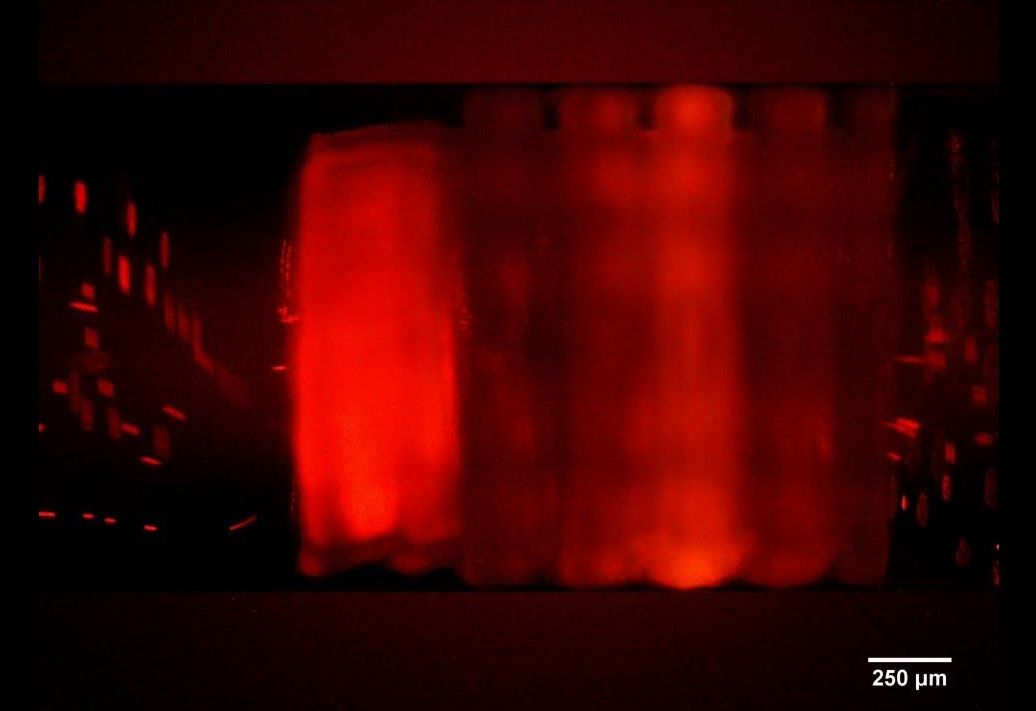
At MBC Biolabs, an incubator for biotech startups in San Francisco’s Dogpatch neighborhood, a team of scientists and interns working for the small startup Prellis Biologics have just taken a big step on the path toward developing viable 3D-printed organs for humans.
The company, which was founded in 2016 by research scientists Melanie Matheu and Noelle Mullin, staked its future (and a small $3 million investment) on a new technology to manufacture capillaries, the one-cell-thick blood vessels that are the pathways which oxygen and nutrients move through to nourish tissues in the body.
Continue reading “Implantable 3D-printed organs could be coming sooner than you think” »
